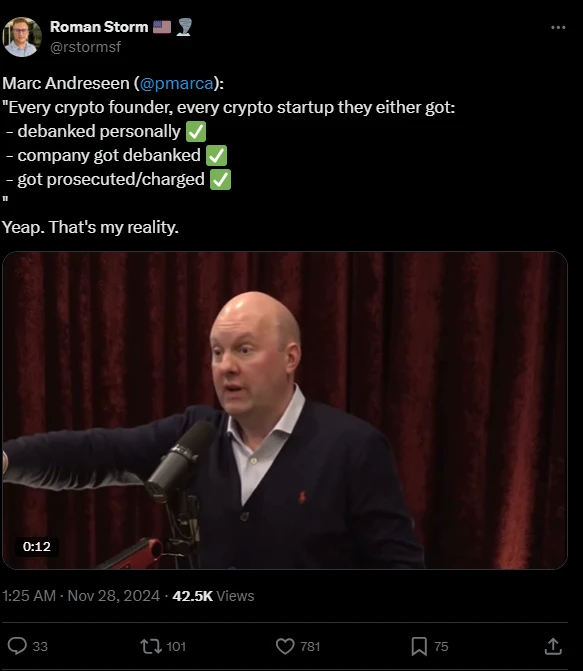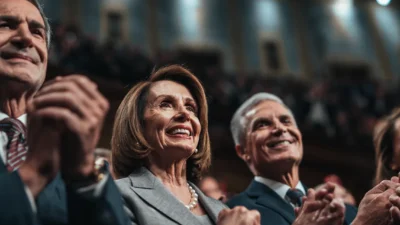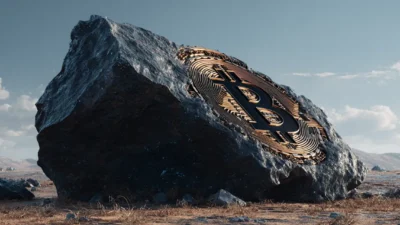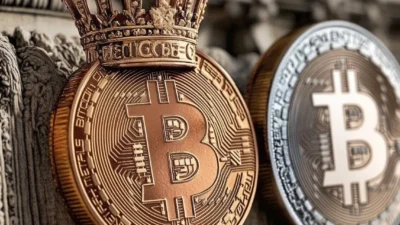TLDR
- Many crypto and tech founders, CEOs, and employees have been debanked.
- But it extends much deeper than the crypto industry.
- Muslims, outspoken Republicans, and more have had their accounts shut down for no reason.
Debanking. It’s a word you might not have heard before, but if you’re in the crypto space, it’s likely a term you know all too well. From founders to employees, and even businesses connected to cryptocurrencies, the number of people cut off from traditional banking services is growing — and it’s hitting closer to home than you might think.
Marc Andreessen, co-founder of venture capital firm a16z, recently lit up the conversation on Joe Rogan’s podcast. Andreessen suggested that over the past four years, 30 crypto founders were “debanked,” meaning their access to financial services was abruptly cut off.
Dypto Crypto did some digging. And as terrifying as this is and was for the crypto industry, it’s just the tip of the iceberg.
The Backstory
Before we get into the stories, let’s break down what Andreessen refers to. Operation Choke Point 2.0 carries the name of an initiative originally launched by the U.S. Department of Justice in 2013.
Back then, federal agencies put pressure on banks to cut ties with businesses in “high-risk” sectors — think payday lenders, firearms dealers, and gambling outfits. It wasn’t long before questions arose about whether this practice was ethical or legal.
The Next Level
Fast forward to today, and the term is resurfacing to describe heightened regulatory scrutiny in crypto. Andreessen pointed to a shift during the Biden administration, alleging that government bodies like the Securities and Exchange Commission (SEC) pressured banks into debanking crypto founders, startups, and related businesses.
We now know this to be true, as copies of “pause letters” issued by the FDIC have made their way online.
“The SEC has been trying to kill the crypto industry under Biden, and this has been a big issue for us because we’re the biggest crypto startup investor,” Andreessen claimed.
He highlighted the SEC’s use of Wells Notices — formal warnings of impending enforcement actions — against major crypto firms like Uniswap Labs, Robinhood Crypto, and NFT marketplace OpenSea as examples.
But Andreessen isn’t the only one speaking up about debanking. Following his comments, several notable voices in the crypto industry began sharing their experiences.
Crypto Founders Speak Up
Roman Storm, co-founder of Tornado Cash (a decentralized cryptocurrency mixer), might be one of the most public examples. After Elon Musk shared Andreessen’s podcast on X (formerly Twitter) and asked, “Did you know that 30 tech founders were secretly debanked?” Storm replied, “Yeap. That’s my reality.”

Storm said he couldn’t even count how many times he’d been debanked in the past two-and-a-half years. “[Ironically], I was just debanked again today,” he added. His company, Tornado Cash, was even sanctioned by the U.S. Treasury Department — a move that the Fifth Circuit Court of Appeals later overturned.
For many founders like Storm, being labeled “high-risk” has far-reaching consequences — they’re scrambling to keep their businesses afloat while struggling to gain basic access to banking services.
Tyler and Cameron Winklevoss Lose Accounts
Gemini co-founders Tyler and Cameron Winklevoss, known for their early investments in Bitcoin, also chimed in to confirm the debanking trend.

Tyler said his company and personal accounts were closed because of their involvement in crypto. Cameron added that they’d lost “more bank accounts than you can count on two hands between their projects and personal accounts.”
“It’s not just 30,” Cameron said, referring to Andreessen’s earlier statement. “That’s just the number in the a16z portfolio alone.”
The Ripple Effect on the Wider Crypto Industry
The impact of debanking isn’t limited to startups and their founders — it has ripple effects for businesses and users all over the world.
Jesse Powell, co-founder of Kraken, said his company struggled for years without U.S.-based banking services because banking relationships were being selectively severed. “Kraken has too many stories of clients and employees losing U.S. banking,” Powell noted.
Similarly, Coinbase CEO Brian Armstrong attributed the Democrats’ election losses, in part, to the crackdown on crypto. He voiced concerns about the ethics of Operation Choke Point 2.0, calling it “one of the most unethical and un-American things that happened in the Biden administration.”
Beyond Crypto: Debanking in Other Sectors
If this whole debacle wasn’t terrifying enough, crypto companies and investors weren’t the only victims. The free press reported on this nearly two months ago. The entire article, at least for the most part, went entirely unnoticed.
Outspoken Republicans, Muslims, and more have been debanked in the last few years.
While crypto is at the center of the storm, debanking extends past blockchain and Bitcoin. LaunchGood, a crowdfunding platform focused on Muslim charities, faced its own set of challenges.
The founder, Chris Blauvelt, recalled being forced to leave a family vacation to negotiate directly with Stripe after their payment processor cut ties. “We’re not terrorists,” Blauvelt said, noting that these incidents highlight a lack of nuance in risk assessments.
The trend isn’t limited to Muslim-founded organizations either. Christian charities, including pro-life organizations in the U.S., have reported being debanked, along with individuals like former first lady Melania Trump.
Why Being Debanked Is Such a Big Deal
Debanking goes far beyond inconvenience. Losing access to traditional banking can halt operations entirely for startups, founders, and employees. Without a bank account, paying employees, collecting revenue, or even filing taxes is nearly impossible.
It also raises the question of fairness. Should private banks be allowed to select or reject customers based on industries they service? And how involved should the government be in guiding those decisions?
In July, the Wall Street Journal reported that Tennessee and Florida passed legislation that bars banks from even looking into information like religion, business sector, or political leanings.
The Treasury Department went nuts, saying these states were interfering with their efforts to deter money laundering and terrorist financing.
Where Do We Go From Here?
We’re sorry. But this is as far as we could go down the rabbit hole without becoming nauseous. The blatant overstepping from multiple agencies is, in our minds, the very proof we need as to why decentralization, blockchain, and crypto are necessary in today’s world.
But, since our loyal readers are…well…loyal, here’s a little icing on the cake.
The CFPB, the organization Andreessen mentioned by name on the podcast, made a recent post on their website about how they just finalized a rule on federal oversight of popular fintech apps in the interest of protecting personal data, reducing fraud, and here’s the real kicker – stopping illegal debanking.
We can’t make this stuff up, guys. If you’re willing to go deeper into this, more power to you. But we’ve had as much as we can take. Be careful out there.












